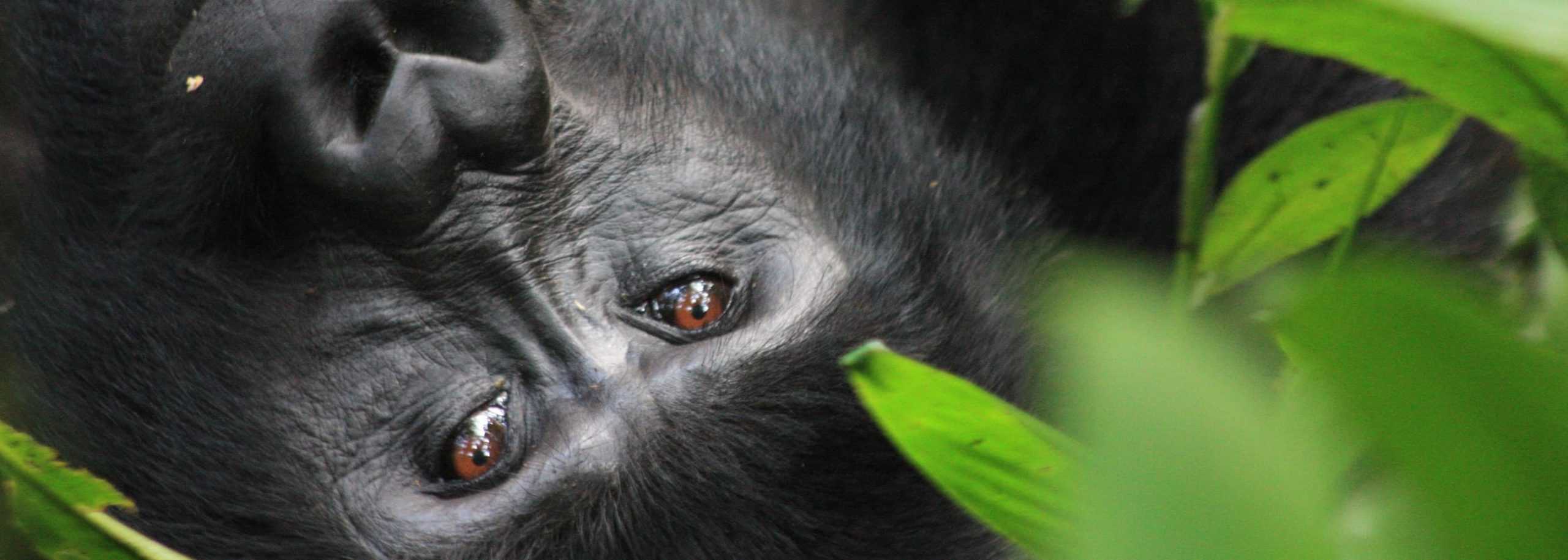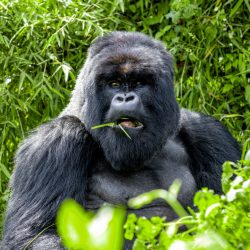More Milk, More Cows and Improved Farming Practices.
Blog | 20/02/20
Who knew that a livelihood improvement project started with the aim of increasing household income and reducing dependency on park resources would also excite and touch the lives of little children? “We had never seen or taken more than half a cup of milk. It is the first time in our lives that we have enough milk to drink and share with our friends”. These remarks were made by the children of Mukasine Asinath in Bugeshi, Rwanda during a field monitoring visit by IGCP to the park adjacent households that received cows in Dec 2018 under “Leading the Change” project.
IGCP under its Sida funded project “Leading the Change” through Kohiki cooperative gave twelve cows to twelve households in Dec 2018 in response to the cooperative’s proposal submitted to IGCP for funding. The purpose of this was to empower the cooperative members economically by providing them with an alternative source of income which gradually reduces poverty, pressure on the national park and also improves park – community relations.

The project’s overall goal is to empower CBOs in the greater Virunga – Bwindi landscape (with both financial and technical support) to exercise their rights in decision making and influence policy in natural resource management.
During the monitoring visit, IGCP learnt that 3 out of the 12 cows had birthed strong healthy calves and that the three respective families were milking about 7-8 liters of milk a day. Most of this milk is being consumed at household level. Once the government completes constructing the milk collection center in Bugeshi, then the farmers can sell some of this supply at the Centre. In Rwanda a litre of milk goes for about 200 RWF ($ 0.4); meaning that one can have enough for their household and for sale. According to Benjamin Mugabukomeye, the IGCP Rwanda Country Coordinator, consumption of more milk by the children is going to reduce on the cases of malnutrition in this area.

Benjamin monitoring the cows in Bugeshi, Rwanda. Photo by Alice|IGCP
Commenting on the use of organic manure on the farms, one Niyigena Julienne was excited to share that the cow dung is doing their farms well and has cut down the expense and hustle of buying organic fertilizers for their farms. In the past, most farmers opted for artificial fertilizers because the cost of procuring and transporting organic fertilizers was so expensive. “However, with cow dung available we have enough high-quality manure for our farms. My gardens are flourishing, and I am so grateful because everything is purely organic now” Julienne shares. Julienne adds that he is also making money from the dung by selling some of it to his neighbors and friends without cows of their own.
With the use of cow dung manure on the farms and the planting of Setaria grass as food for the cows and a soil erosion control measure, the project beneficiaries in Bugeshi are gradually promoting conservation agriculture.
In a related development, twenty-eight households in the park adjacent areas of Kinigi, Gahunga and Kabatwa received a cow each in December 2019. This is a scale-up of the initiative in Bugeshi. Leading the change project aims at empowering the park adjacent communities, economically and technically enough to champion the change they want to see in their communities.
Providing tangible alternative sources of income to the community according to Benjamin is a great approach to changing community perceptions and attitudes towards conservation “And this can gradually put them at the fore front of influencing decision making and policy in natural resource management in their localities” Benjamin notes. Precisely when the capacity of the CBOs is strengthened to identify priority projects and find funding from projects like Leading the Change or the revenue sharing scheme great change will be realized at both household/community and park levels.


